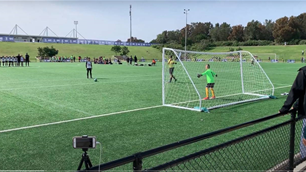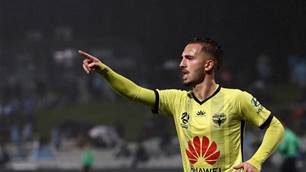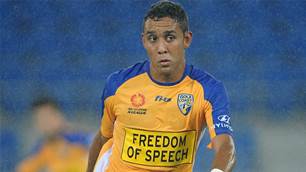Could we be near the point where it's not only players moving on to Europe?
The rise of the A-League has propelled many players to Europe, and with the standard continuing to improve and Australian coaches starring in the competition could we be nearing a point where it's not only players moving on to Europe?
Joe Marston and Craig Johnston were pioneers for a whole generation of Australia footballers who dreamed of playing in top European leagues.
Australia's coaching equivalent has not yet emerged but it may not be too far away.
Thriving in the domestic competition Ange Postecoglou has his team playing the type of football that would be welcome at clubs in many of Europe's biggest leagues, and others such as Mariners boss Graham Arnold and Socceroos Assistant Aurelio Vidmar are undertaking impressive work.
Many will rightly point out that success in the A-League is very different to success in Europe.
However, those who doubt the ability of coaches from Australia should keep in mind the countless number of players who have made a successful transition to Europe after being under the guidance of Australian coaches.
Possibly even more convincing is the frequency of coaches from some of Europe's smaller nations, such as Sweden and Scotland, being successful in some the world's top competitions.
Managers such as Owen Coyle, Sven-Goran Eriksson and Paul Lambert started their coaching careers in leagues that, if at all, are only just above the standard of the A-League.
Those concerned that Australian coaches may struggle to adapt to a different mentality have perhaps the most valid concern.
There have been countless coaches, such Luiz Felipe Scolari, who have been unable to transfer success from one country to another.
However, many of the most promising Australian coaching candidates have spent considerable time as players in Europe, spent time working and playing in the national team set-up or worked alongside extensively experienced European coaches.
Also preparing Australian coaches to make this step-up are the expectations placed on coaches in the country.
Thanks to improvements in the coaching environment no longer is off-the-cuff football acceptable to players or fans, with both demanding a playing style that is attractive and successful.
Setting the bar on this is Postecoglou, with Australian coaches now able to see what is possible with a clear philosophy if it is applied in the right environment.
Just as Pep Guardiola has altered the perception of coaching in Europe, by demonstrating the impact a coach can have on a team, so too has Postecoglou.
Whilst the Roar boss appears the most likely candidate to move on to European football, there are others who would share his ambition, and who no doubt would have been inspired by his work.
This reflects the positive changes that have swept through Australian football in the last few years.
No longer is coaching merely seen as something that ex-players do when they can no longer play, rather it is a profession requiring an extraordinary amount of preparation and hard work.
There is no better example of this than Melbourne Heart Youth team assistant Arthur Papas.
Papas has gone to impressive lengths in pursuing a coaching career undertaking a Masters in Sports Coaching and an AIS coaching scholarship whilst gaining his qualifications.
Would he have been likely to do so 10 years ago?
It is doubtful, as the coaching environment was not as it is now and the demands and expectations were less.
The FFA's work in changing this should be applauded.
The creation of a National Curriculum, availability of coaching courses and seminars mean that now there is little excuse for coaches not being competent.
Perhaps this has been the biggest driver in the emergence of Australian coaching talent as expectations create an environment that demands the best.
This is welcome news for football in Australia as the standard of football produced in the A-League will continue to improve because the demands on coaches will ensure that only the best tacticians rise to A-League level.
The fact that Australian coaches are being spoken about as having the potential to coach in Europe is an impressive reflection of the state of the game.
When a move to one of the world's biggest leagues happens it may well be the first of many and Australia will continue on its march to become a football nation.
Follow me on Twitter @beaubusch
Related Articles

Fresh talent flock to ambitious A-League outfit's pro pathway

Why A-League 20/21 is crucial for Olyroos’ medal hopes













